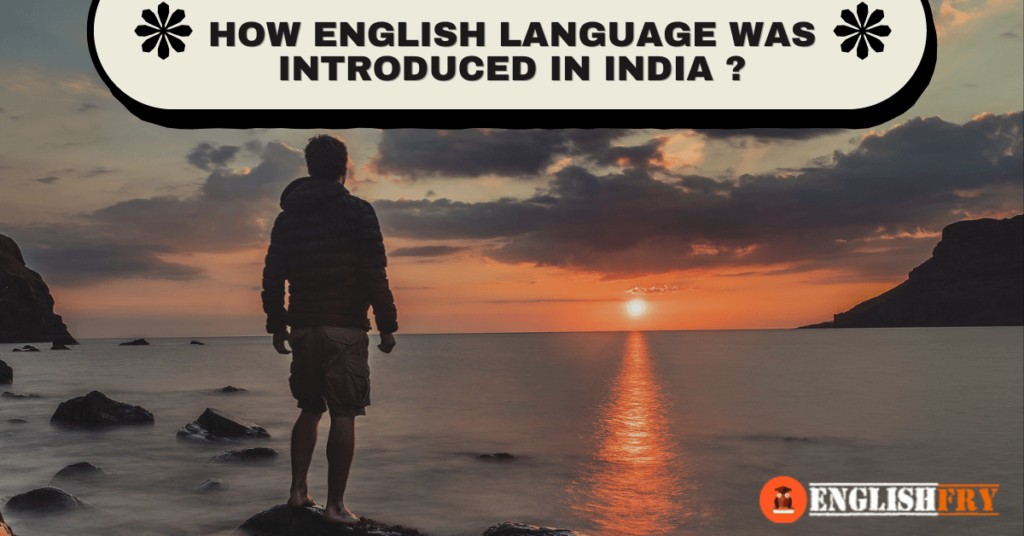Table of Contents
ToggleIntroduction: The Timeless Allure of English Language and Literature
The English language is a tapestry woven with timeless tales that have captured hearts and minds for generations. From Shakespeare’s enchanting verses to Poe’s haunting stories, the world of English literature holds a treasure trove of diverse narratives that continue to captivate audiences, transcending time and culture. In this exploration, we delve into the allure of these classic tales, examining their enduring qualities and irresistible charm that beckon readers in an ever-evolving literary landscape.
A Journey Through Time: Unveiling the Magic of English Literature
Journeying through English literature is like a time-traveling adventure, allowing readers to step into different eras and societies. Chaucer’s works transport us to medieval England, where “The Canterbury Tales” offer vivid glimpses into the lives of diverse pilgrims. Jane Austen’s elegant prose sweeps us into Regency-era intricacies, while Charles Dickens’ gritty narratives unveil Victorian London’s stark realities. This ability to transcend temporal boundaries showcases the universal themes these stories explore—love, ambition, injustice, and the human condition.
Language as Art: The Intricacies of English Literature
At the heart of English literature lies the language itself—a mosaic of words, phrases, and idioms creating an emotional symphony. William Shakespeare’s poetic genius exemplifies this, as his sonnets and plays blend wit, passion, and profound insight. The rhythmic iambic pentameter and poetic devices he employs add layers of meaning, making his works a playground for interpretation. Beyond Shakespeare, poets like John Keats, Emily Dickinson, and Robert Frost showcase language’s potential to evoke emotions and imagery.
Exploring the Human Psyche: Unraveling Complexities in Classic Tales
Classic tales delve into the depths of the human psyche, unraveling the complexities of human nature. Shakespeare’s tragedies, such as “Hamlet” and “Macbeth,” explore the consequences of unchecked ambition and the struggle with one’s morality. Mary Shelley’s “Frankenstein” centralizes themes of knowledge pursuit and the consequences of playing god. These explorations resonate across cultures and time, reminding us of shared human experiences and the tales’ enduring relevance.
Lessons and Morality: Beyond Entertainment in Classic Literature
Classic literature entertains and serves as a moral compass. Aesop’s fables teach valuable lessons through allegorical tales, imparting wisdom accessibly. Complex narratives like George Orwell’s “Animal Farm” and Aldous Huxley’s “Brave New World” offer insights into political and societal issues. Characters’ moral dilemmas mirror our ethical choices, reflecting our own lives.
Adaptation and Resurgence: Classic Tales in the Modern World
In the age of technological advancement, classic tales experience a renaissance through innovative adaptations. While the original texts remain cherished, technology introduces new engagement avenues. Interactive eBooks, audiobooks, and online platforms offer immersive experiences. Virtual and augmented reality applications let readers step into imagined worlds. These adaptations introduce timeless tales to a new generation while enhancing accessibility and interactivity.
Cultural Universality: Bridging Cultures through Classic Stories
Classic English literature transcends cultural barriers with its universal quality. Themes of love, loss, ambition, and struggle resonate across languages and cultures. As English remains a global lingua franca, these stories bridge gaps and foster cross-cultural understanding.
Education and Empowerment: Classic Tales’ Role in Learning
Classic tales enrich education, fostering cognitive and emotional development. Students encounter language structures, historical contexts, and diverse perspectives. Analytical skills cultivated through dissecting themes and characters encourage critical thinking. These stories empower readers to articulate thoughts, engage in discussions, and connect profoundly.
Preservation of Legacy: Honoring Literature’s Enduring Relevance
Reviving classic tales honors authors’ cultural contributions and ideas’ ongoing relevance. Amidst rapid change, preserving these literary gems anchors us to the past while navigating the present’s complexities.
Conclusion: The Unfading Allure of Classic English Literature
Classic English language and literature’s allure remains a beacon of wisdom, creativity, and inspiration. Across time, cultures, and technological innovations, these stories magnetically draw readers in. Through language mastery, exploring human experiences, and resonating universal themes, classic tales mirror our lives and unveil humanity’s tapestry. Reviving, adapting, and celebrating these narratives ensures their enchanting allure persists, inviting new generations into the timeless journey of discovery and introspection.
FAQ: for this article
Q1: What is the main focus of the blog post? A1: The blog post explores the timeless appeal of classic English literature and the reasons behind its enduring popularity. It delves into the language’s artistic intricacies, the exploration of human psychology in classic tales, moral lessons conveyed through narratives, adaptations of classic stories in the modern world, and the cultural universality of these tales.
Q2: How does the blog post begin? A2: The blog post starts by highlighting the lasting charm of English language and literature. It introduces the idea that these stories have captivated readers across generations and cultures, citing examples from Shakespeare and Poe.
Q3: How does the post describe the journey through time in English literature? A3: The post likens the experience of reading English literature to time travel, allowing readers to immerse themselves in different historical eras and societies. It mentions Chaucer’s “The Canterbury Tales,” Austen’s Regency-era stories, and Dickens’ depictions of Victorian London as examples of this journey.
Q4: What role does language play in English literature? A4: The post emphasizes that language is at the core of English literature’s allure. It refers to Shakespeare’s use of poetic devices and rhythmic patterns to create emotional depth. Other poets like Keats, Dickinson, and Frost are also mentioned for their ability to evoke emotions and imagery through language.
Q5: How do classic tales explore the complexities of the human psyche? A5: Classic tales are described as delving into the depths of human nature and psychology. Examples such as Shakespeare’s tragedies and Mary Shelley’s “Frankenstein” are used to illustrate how these stories address themes like ambition, morality, and the consequences of unchecked pursuits.
Q6: How does classic literature go beyond entertainment? A6: The blog post suggests that classic literature serves as both entertainment and a source of moral guidance. It mentions Aesop’s fables and novels like Orwell’s “Animal Farm” and Huxley’s “Brave New World” as examples of narratives that offer valuable insights into societal and ethical issues.
Q7: How are classic tales adapted in the modern world? A7: The blog post discusses how classic tales experience a resurgence through innovative adaptations in the digital age. It mentions interactive eBooks, audiobooks, and virtual reality applications as ways to engage modern audiences with these timeless stories.
Q8: How does classic English literature bridge cultures? A8: The post highlights the cultural universality of classic English literature. It explains that themes like love, ambition, and struggle resonate across different cultures and languages, making these stories a means of fostering cross-cultural understanding.
Q9: What role do classic tales play in education? A9: The blog post explains that classic tales enrich education by offering insights into language structures, historical contexts, and diverse perspectives. It also emphasizes how analyzing themes and characters enhances critical thinking and the ability to articulate thoughts.
Q10: Why is preserving classic literature important? A10: The post asserts that reviving classic tales honors the cultural contributions of authors and maintains the ongoing relevance of their ideas. In a rapidly changing world, preserving these literary works serves as an anchor to the past while navigating the complexities of the present.
Founder of Englishfry.com, a captivating and knowledge-driven blog & Founder of Android app/website Studyfunnel.com, an online Mock Test Series Portal. With a wealth of experience spanning over 16+ years, he has excelled as an Ex-professor, Teacher, Author of Book “Island of Illusion”, Blogger, Graphic designer, Poet, and Creative content writer. His tryst in Literature helped him realize his love for writing and telling stories. A tech-savvy language nerd by day and, a passionate writer by night, he now translates his experiences into tales of wisdom served with a side of humor.His widely recognized profound insights ,captivating writing style makes him contribute to prestigious publications and a sought-after authority in the field.








